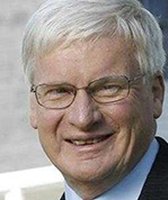Stand up for the facts!
Our only agenda is to publish the truth so you can be an informed participant in democracy.
We need your help.
I would like to contribute
Republican Scott Walker made stopping the train to Madison, cutting taxes and creating 250,000 jobs the cornerstone promises of his successful bid for governor.
But he also made dozens of less-noticed pledges of high interest to hunters, gun owners, school parents, teachers, tourists, veterans and even ex-Wisconsinites.
PolitiFact Wisconsin"s new feature, the Walk-O-Meter, will track Walker's progress on 60 promises over his four-year term in office.
Several factors suggest Walker is well-positioned to keep many of his promises, though observers say steep challenges stand in the way of others, especially on taxes.
In the eyes of political scientists and others, Walker offered a politically potent set of very specific policy prescriptions and more general philosophical aims honed during two successive campaigns for the statehouse.
Sign up for PolitiFact texts
"It's a pretty ambitious agenda, a clear shift in direction for the state," said University of Wisconsin-La Crosse political scientist Joe Heim.
With a Republican state Legislature taking over, Walker — a former state representative — should get a friendly reception. He takes office at a time of widespread agreement that Wisconsin needs to tighten spending and end a cycle of deficits.
Cutting the budget in Madison usually means that local schools, the university system, local government services and other popular programs will feel the pain, so Walker will face opposition and perhaps resistance from his party if he goes too far.
"Achievements rarely rise to the level of expectations," said Heim. "We are not electing a dictator so they can't get everything they want."
But Republicans are aware frustrated voters will judge them quickly and harshly if they don"t follow through.
"If we don"t make cuts we'll be out on our ear," said state Sen. Luther Olsen (R-Ripon). "The voters divorced the Democrats, but they didn't marry us. I'm not sure when they get the medicine they are going to enjoy swallowing it, but the gimmicks are over."
Some observers think Walker"s conservatism and history of making a big deal of abiding by promises means he will be pretty unbending
"I think the train is a fabulous example," said Mordecai Lee, a professor of public administration at the University of Wisconsin-Milwaukee political scientist and former Democratic state lawmaker.
He was referring Walker's success — even before taking office — in turning away $810 million in federal funds for high-speed rail between Milwaukee and Madison.
"It's emblematic of what his governorship will be," Lee said. "He will stick literally to his campaign promises come hell or high water. Would (former Republican governor) Tommy Thompson have walked away from $800 million?"
Here is an overview of some of Walker's major promises — and a few lesser ones.
Taxes
Walker promised to veto all tax increases. And he promised a lower tax burden for "all" individuals and job creators. That included a list of specific tax cuts that the liberal advocacy group One Wisconsin Now says adds up to $5 billion in revenue.
Walker pledged to eliminate the state tax on retirement income, cut and eventually scrap the corporate income tax, lower the personal income tax, freeze property taxes, cut small business taxes, and repeal the emergency 2009 tax hikes on high incomes, capital gains and combined business income.
Scot Ross, who heads One Wisconsin Now, believes Walker over-promised on taxes under pressure in a tight primary election and won"t be able to balance the budget if he does all of that.
Even Republican Party executive director Mark Jefferson says an economic turnaround — that brings in more income tax revenue to balance the budget — is a prerequisite for keeping all the tax pledges.
The public has concerns about the size of government, but is far more focused on job creation than on cuts in taxes and government spending, according to a post-election poll by the conservative Wisconsin Policy Research Institute. That poll also found 63% of Wisconsinites (including 40% of Republicans) favored raising taxes on "higher income people" to alleviate the state's budget deficit.
That means Walker will have to work hard to tie his small-government agenda to an economic recovery plan.
Jobs and economy
Some voters scoffed at Walker"s pledge to create 250,000 jobs in his four-year term. But economists are as likely as not to say that's a good bet.
Wisconsin has lost more than 155,000 jobs since the recession began, though private sector employment is up 34,700 in the last year, state figures show.
It went with less notice, but Walker also promised 10,000 new businesses would be created.
Walker didn't show many cards on his economic development strategy — targeted tax cuts, restructuring a state agency, staying in touch with business leaders — but his concrete job pledge makes this an easy one to track.
Education
Walker and Republicans in the Capitol are primed to remove enrollment caps on private school choice and on virtual charter schools.
That was a Walker promise, along with bringing back the "qualified economic offer" system for school labor negotiations.
Walker also promised to grade schools based on quality, allow more teachers without education degrees and end social promotion for third graders who can't read up to standard.
"Nothing he proposed was out of reach," said Olsen, who will chair the Senate Education Committee.
Perhaps the most controversial Walker education pledge is removing residency requirements for teachers.
Milwaukee city officials long have fought that, saying that ending residency would drain middle-class residents from the city; Walker says it's an arbitrary barrier that keeps qualified teachers from applying in certain districts.
Natural Resources
From the specific (appoint "Whitetail Deer trustee") to the broad (allow increased access to state lands), Walker made a big play for hunter-voters, promising a less-regulated deer hunt and a more "hunter friendly" Department of Natural Resources.
It appears many of his promises in this area are within his power. For instance: He wants a farmer on the DNR board, audits of fish and wildlife spending and a study group on hunting and the environment.
Other
Walker can easily fulfill some promises: Creating a "government waste" commission, declaring an economic emergency and calling a special legislative session, developing a plan for the Veterans Trust Fund.
Others will require a few bucks: reopening tourism centers, reaching out to departed Wisconsin residents to urge them to come home.
Walker said he would lift Wisconsin's nuclear power moratorium. And on public safety, he promised to adopt a "Castle Doctrine" law giving residents the legal right to use force to protect themselves in their homes and anywhere they have a legal right to be
One final notable promise — a technical, but important one — could loom large over Walker's actions.
He wants state government's budget balanced according generally accepted accounting principles. If they were in place now, they would make the size of the state's budget challenge even bigger than the projected $3 billion deficit.
No matter how you add it up, voters may be surprised if they expect quick fixes to entrenched problems.
"We didn't get in this mess in one two-year cycle, and it's not reasonable to assume we can turn it around in one session," noted John Reinemann, lobbyist for the Wisconsin Counties Association.
Our Sources
Various interviews, as quoted

















































